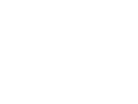Frequently Asked Questions about Transplants
FREQUENTLY ASKED QUESTIONS ABOUT TRANSPLANTS
What is transplantation? Who needs it?
Transplantation is the replacement of a damaged organ or tissue by a healthy one. Nowadays it consists on a developed medical technic which accomplishes excellent results. However, there must be a donor, if not, no transplant can be done.
Who needs a transplant?
Patients with an incurable terminal disease which affects a specific organ and have already tried all therapeutic possibilities with no success, are the ones who would need a transplant. When these patients suffer a vital organ disorder and can no longer continue living a normal life, then it is the moment to perform the transplant. It is necessary that the rest of the body of the patient is healthy for a successful transplantation.
How much does a transplant cost?
The Spanish National Health System and the respective autonomous communities, pay for the therapy for a transplant (including the immunosuppressive drugs after the transplant has been performed). The patient does not have to pay anything for it. The organ is transplanted for free, so the economic and social condition of the patient is not relevant.
How to get a transplant
The specialist of a specific zone suspects that a patient needs a transplant and refers him/her to the hospital in charge of these patients. Once the case is studied and the assessment protocol is done, the Candidate Approval Board (formed by professionals from different specialties such as surgeons, internal medicine specialists, anesthesiologists, radiologists, pathologists, social workers, Transplant Coordination) discuss the case and decide whether to put the patient in the waiting list or not.
How are organs assigned for transplants?
In order to guarantee equality and equity, the organ assignment criteria is established keeping in mind two fundamental aspects: territorial and clinical. The territorial criteria allows organs to be transplanted in the same place where they have been extracted, so that the transplantation time is reduced as much as possible.
Can a foreign patient be transplanted in Spain?
In theory, the access to transplants in Spain is limited to Spaniards and foreigners who are legal residents in this country. Both the World Health Organization and the Council of Europe have forbidden "transplant tourism" (i.e. travelling for transplantations), when it implies organ trafficking or organ commercialization, or if the resources dedicated to transplants for foreign patients limit the resources available for citizens. Even though Spain is the country which has the higher donation rates in the world and a great number of transplants are done here, there is a long waiting list to receive an organ.
The alternative to this "transplant tourism" is to develop organizational systems in every country so that patients can have access to transplants in their own country. For all these reasons, only in exceptional circumstances and under strictly controlled conditions can transplants be performed to foreigners in our country.
Ethical issues
Organ donation is a generous process, since the donor can save the life of many people or improve life quality to others. Nevertheless, it requires special conditions. First and foremost, death diagnosis must be confirmed; then, adequate measures must be followed in order to keep the organs functioning; and finally, possible infectious diseases must be ruled out. All these conditions reduces the possibilities of becoming a donor.
The number of donors is limited, and the number of patients who can receive a transplant is getting lower.
Ethics issues can be seen here in the sense that the hospital must decide which patient is going to receive a transplant, which means that someone is left without a new organ.
Can I donate my organs and my body to medical science?
Organ donation is not compatible with body donation to medical science. For body donation you can contact the Anatomy and Human Embryology Department at the School of Medicine.
Avda. Blasco Ibañez nº 15, Valencia, 46010
Faculty access: Staircase 3 D
Phone number: 963864966
Fax: 963864159
E-mail: dep.anatomia.i.embriologia.humana@uv.es


